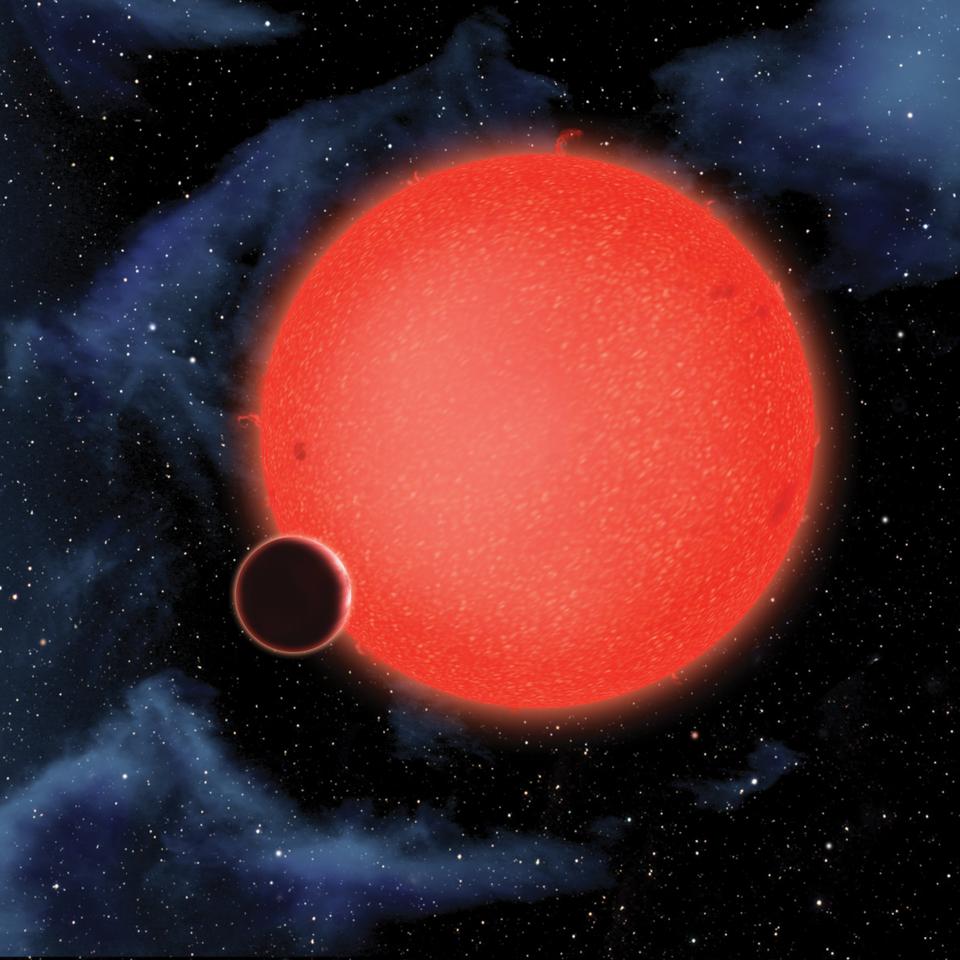
News
Summers Will Not Finish Semester of Teaching as Harvard Investigates Epstein Ties

News
Harvard College Students Report Favoring Divestment from Israel in HUA Survey

News
‘He Should Resign’: Harvard Undergrads Take Hard Line Against Summers Over Epstein Scandal

News
Harvard To Launch New Investigation Into Epstein’s Ties to Summers, Other University Affiliates

News
Harvard Students To Vote on Divestment From Israel in Inaugural HUA Election Survey
Harvard Researchers Discover "Water World"

The first planet outside of our solar system that is largely composed of liquid water has been discovered by researchers at the Harvard-Smithsonian Center for Astrophysics.
The new planet, named GJ1214b, was discovered in 2009 by Zachory K. Berta, a graduate student in Astrophysics, and his thesis adviser David Charbonneau, an astronomy professor.
But Berta and his colleagues only recently confirmed the planet’s classification as a “water world”—a reference to the 1995 Kevin Costner film—after analyzing observations taken by the Hubble Space Telescope’s last shuttle trip.
“It’s been sort of a long process,” Berta said. “We had some hints that we might be dealing with a planet that had a very large fraction of water in it but we couldn’t confirm it at the time,” Berta said.
Researchers determined the planet’s composition based on the distortion of light picked up by the Hubble Space Telescope during the planet’s transit of the red dwarf star it orbits.
The planet, which is 40 million light years away from earth, has a diameter about 2.7 times that of earth.
“It’s absolutely very satisfying to finish a very long analysis,” Berta said. “The biggest emotional moment was realizing that things were going to work.”
Looking ahead, Berta said there are two main areas for future research. The first is to continue observing GJ1214b in more detail using the methods of the Hubble’s most recent trip in order to learn more about the planet’s composition.
Second, Berta said researchers must work to find more planets like GJ1214b, develop a population of observations for water-based planets, and then study these planets’ atmospheres.
“If you can study the atmosphere, then you can start to piece together the sort of biochemistry occurring on the planet,” Berta said. “You could start to tell if the planet has the conditions for life or actually has life.”
Joshua N. Winn, a physics professor at the Massachusetts Institute of Technology who was not involved in the recent discovery, said the classification of the planet will have important implications in the search for extraterrestrial life.
“I think it’s very exciting, and the reason is because a long term goal in this field is to eventually be able to study planets like the Earth,” Winn said. “This study takes us along that way because this is the first study of observing a small planet, not a large one like Jupiter.”
Berta’s research will be published in the March 2012 edition of The Astrophysical Journal.
—Staff Writer Daniel J. Kramer can be reached at dkramer@college.harvard.edu.
Want to keep up with breaking news? Subscribe to our email newsletter.
